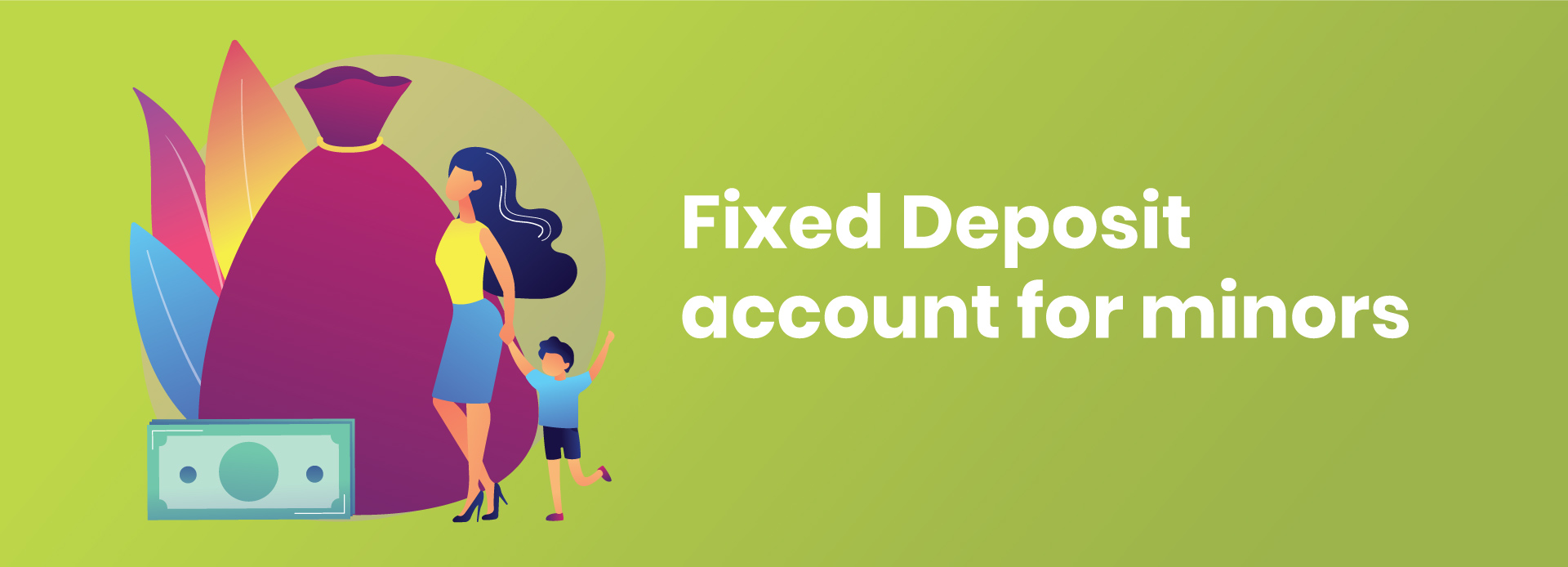
Fixed Deposit Account For Minors
28 June 2024 | By INDIE
Fixed deposits, or any other type of bank account, are usually associated with adults. But they are not just for adults but for your child too. A fixed deposit for a minor enables you to open an FD on your child’s behalf. They will receive the earnings when they become adults or after the maturity of FD. Until then, you are responsible for managing the account. Also, fixed deposits are less risky. Hence, they are a viable investment opportunity for everybody. They can also shape your child’s financial future and help inculcate frugality. However, you should first opt for a suitable type of FD for minors.
What are the Different Types of FDs for Minors?
There are two specific types of fixed deposits for a minor. They are:
➢ Traditional Fixed Deposit:
Enjoy the flexibility of FD interest regularly, either quarterly or monthly. You could also customize a payout frequency to reach your financial goals.
➢ Reinvestment Options:
Consider opting for a cumulative fixed deposit to grow your wealth steadily. The interest you earn grows the principal amount every quarter. This feature is called compounding. Gradually, you will receive the entire amount after maturity.
What are the features and benefits of FDs?
Here are a few benefits of FD accounts:
● The duration of the FDs ranges between a few months to several years. Choose the tenure that suits you best. For instance, for IndusInd Bank Fixed Deposit, the tenure is between 7 days and more than five years.
● The bank pays your Interest either quarterly, annually, or monthly. Or, they reinvest the interest in the FD for minors.
● Your returns are not subject to market fluctuations. So, they make your investments secure and liquid.
● You can also renew your FD automatically at maturity and continue to accumulate interest.
Also Read: Why a Fixed Deposit is a good investment?
What is the Process of Opening a Fixed Deposit for Minors?
Follow these steps to open a fixed deposit for a minor:
➔ Choose the bank you want to open the FD account with and access the account opening application form.
➔ Enter accurate information on the application form. You should provide details about you and your child. You will be responsible for managing the FD until your child is 18. Therefore, the application form must have your details too.
➔ Submit the necessary and valid ID proof for you and the minor. For the minors, you could use their birth certificate. You could submit your Aadhar card, PAN card, voter ID, or passport to verify your details.
➔ Choose your FD tenure. Then, state whether you want the interest periodically or opt for reinvestment.
➔ Determine the initial deposit amount for your FD.
➔The bank will issue a receipt or certificate with details of your FD after approving your application.
Why Should You Open Fixed Deposits for Your Child?
Here is how FDs can help your child:
1. They help you financially plan your child’s future. You could cover your child’s education expenses or other important life events.
2. Minor FDs may offer higher interest rates, unlike savings accounts. The interest rates for FD are somewhere around 3.50% and 7.50%. Conversely, the interest rate for savings accounts is around 4% and 6.75%. Thus, FDs help your investment effectively.
3. The money deposited in a fixed deposit has a lock-in period. The lock-in feature inculcates financial discipline because it helps you avoid impulsive spending.
4. Generally, minor FDs are low-risk investment options. They might be a stable investment option for saving your child’s funds.
FD for minors are a prudent investment choice if you seek stable returns to secure your child’s future. They offer advantages like flexible tenures and fixed interest rates. Furthermore, they encourage financial discipline, thereby earning long-term savings.
Disclaimer: The information provided in this article is generic and for informational purposes only. It is not a substitute for specific advice in your circumstances. Hence, you are advised to consult your financial advisor before making any financial decision. IndusInd Bank Limited (IBL) does not influence the views of the author in any way. IBL and the author shall not be responsible for any direct/indirect loss or liability incurred by the reader for making any financial decisions based on the contents and information.





